

King of the dancefloor
What is The Salvation Army?
The Salvation Army is a Christian church and registered charity seeking to share the good news of Jesus and nurture committed followers of him. We also serve people without discrimination, care for creation and seek justice and reconciliation. We offer practical support and services in more than 700 centres throughout the UK. Go to salvationarmy.org.uk/find-a-church to find your nearest centre.
What is the War Cry?
The Salvation Army first published a newspaper called the War Cry in London in December 1879, and we have continued to appear every week since then. Our name refers to our battle for people’s hearts and souls as we promote the positive impact of the Christian faith and The Salvation Army’s fight for greater social justice.
Editor: Andrew Stone, Major
Deputy Editor: Philip Halcrow
Staff Writer: Emily Bright
Staff Writer: Claire Brine
Staff Writer: Ewan Hall
Editorial Assistant: Linda McTurk
Graphic Designer: Mark Knight
Graphic Designer: Natalie Adkins
Email: warcry@salvationarmy.org.uk
The Salvation Army
United Kingdom and Ireland Territory
1 Champion Park London SE5 8FJ
Tel: 0845 634 0101
Subscriptions: 01933 445445 (option 1, option 1) or email: subscriptions@satcol.org
Founders: Catherine and William Booth
International leaders: General Lyndon Buckingham and Commissioner Bronwyn Buckingham
Territorial leaders: Commissioners Jenine and Paul Main
Editor-in-Chief: Major Julian Watchorn
weekly by The Salvation Army
The Salvation Army United Kingdom and Ireland Territory ISSN 0043-0226
The Salvation Army Trust is a registered charity. The charity number in England, Wales and Northern Ireland is 214779, in Scotland SC009359 and in the Republic of Ireland CHY6399.
From the editor’s desk
A cancer diagnosis – whether for yourself or a loved one – can be frightening. The mere word reminds us of our mortality, the disease seemingly able to strike anyone.
It is why so many of us are grateful for the work of scientists such as Professor Richard Gilbertson, who is currently director of the Cancer Research UK Cambridge Centre. Richard’s area of expertise is childhood cancers, which, while rare, can seem some of the most cruel diseases.
However, as Richard explains in an interview this week, progress is being made in the understanding and treatment of these cancers.
‘I think the main revolution that has happened in my time with children’s cancer is an understanding of the biology,’ he tells us. ‘We have new technologies to study the individual genes that cells express, and what goes wrong in those cells.’
Despite the progress made, it is still desperately upsetting to see a child suffering. It makes some people question the existence of a loving God. How could he allow it to happen?
Richard is a Christian, and he admits that he can’t explain why God allows children to become so seriously ill.
‘People say to me, “How can you believe in God if children get cancer?” I can’t answer that question,’ he says. ‘I don’t have the answers to everything, and it’s OK to say that. What I can do is think what Christ would do in this situation. He would be bringing as much support, positivity, care and love as possible.’
Terrible things do happen in the world, things that we fervently wish didn’t. Christians are not immune from distressing situations. But when they do experience them, they can take inspiration from Jesus in the way that they respond to them, and take comfort from knowing that his love can sustain them.
And it’s just enough to make any situation feel a little less frightening.
When you’ve read the War Cry, why not pass it on ➔ ➔ ➔

Printed by CKN Print, Northampton, on sustainably sourced paper


INFO INFO
Your local Salvation Army centre



Stepping up

Celebrities embrace the challenge of learning to dance
TV feature: Strictly Come Dancing Saturdays BBC1 and iPlayer
By Claire Brine
Sparkles and sequins in September can mean only one thing: BBC1’s Strictly Come Dancing is back. Cue the applause!
As fans settle down on the sofa –perfectly positioned for the series launch show on Saturday (20 September) –15 celebrities are awaiting the moment when they discover who their professional dance partner will be.
Once all the couples have been revealed, it’s down to the serious business of training, resulting in (hopefully) some dazzling dance routines over the coming weeks. After all, there’s a glitterball trophy up for grabs – and only one pair can waltz in to win it.
While the celebrities have spoken about their excitement at hitting the dancefloor, many of them have also admitted to feeling nervous and clueless about how they are going to master the steps expected of them.
Former footballer Jimmy Floyd Hasselbaink said he was looking forward to the challenge of trying out ‘a new type of footwork’, but sincerely hoped there would be ‘no own goals’.
Other celebrities to confess their inexperience include YouTuber George Clarke, who announced, ‘I’ve got no idea what I’m doing, but I’m excited to get stuck in’, and TV presenter Vicky Pattison, who admitted to feeling terrified but still up for the challenge.
One of this year’s older celebrities to put on their dancing shoes, the LA correspondent for Good Morning Britain, Ross King, explained why being on Strictly was a dream come true.
‘I can’t wait to learn from the best,’ he said. ‘Let’s give this the best that I can! As my mum always said: “You’ll never know till you give it a go!”’
In the competition’s early stages, it may be hard to tell which of the celebrities will shine in the spotlight and which ones will slip up. One thing we do know, though, is that they’ve all got a lot to learn. None of them can dance perfectly. All of them will be taking steps to improve.
Perhaps we too can understand what it feels like to face a challenging situation and yet not really have a clue what we are doing. Maybe we have a vague idea of
Jimmy Floyd Hasselbaink, Ross King, Vicky Pattison and George Clarke
what we hope to achieve, but aren’t sure how to get there. Maybe our approach to life is to just make it up as we go along.
Whenever we feel unsure about what our next steps should be, we need guidance from a trustworthy source. Someone to lead us in the right way – who can show us how to be the best that we can be.
Jesus can do just that.
When we take on board his teachings, we are introduced to a style of life that promotes love, rather than hate, and peace, rather than fear. Jesus can show us how to forgive the people who wrong us. How to treat people fairly. How to ask God, our heavenly Father, for help when we move through the twists and turns of life.
Jesus says: ‘Follow me’ (Mark 1:17 New International Version). It’s an invitation to learn from the best – an invitation that has inspired people across the centuries – and it’s open to everyone today.
Whatever our skill set, we are free to experience life from a new perspective the moment we turn to Jesus. But we’ll only know when we give it a go.
talk talk Team talk Team talk ‘ ’ j TEA M TALK
WAR
Bags for life
Play time
‘Urban planners are prioritising housebuilding over parks’, meaning that children across cities in England are facing ‘barriers to playing outside’, reported The Guardian
The article highlighted a study published in the Cities and Health journal, which revealed that planners are approving new homes ahead of outdoor play spaces – with consequences for children.
Emily Ranken, from the University College London Institute for Education and corresponding author of the research, said that ‘welldesigned play space’ is vital for children because it ‘takes them outside, away from screens and develops their cognitive and physical skills’. She stressed that councils, developers and public health leaders should ‘make play a priority’.
I forget what
Reading this, I found myself thinking of my six-year-old daughter, who loves to play outside. When she’s running around in the fresh air, she’s free from the pressures of the classroom. No one is assessing how she is performing academically. Her imagination can run wild. I love watching her make friends with the other children around her, showing a confidence that I’m not sure I possess.
Some observers might suggest that my daughter’s outdoor games are pointless. By rolling down a hill or pretending to make potions from leaves, twigs and water, she’s not mastering a skill that will look good one day on a CV. But to dismiss her outdoor play would be to miss its point. Playing is good for her. Her behaviour indicates that she feels at her best when she does it.
And I’ve noticed that when I join in with her games, I feel better too. I feel more connected with her. My mood lifts. I forget what I was worried about five minutes before.
I experience similar feelings when I take time to pray.
Though observers may be sceptical about the point of praying, I know that it’s good for me. When I spend time with God, I become calmer, less worried, more hopeful. And the more frequently I connect with him, the stronger my faith can grow.
To put it simply, being the best version of myself is only possible when I remove any barriers and make prayer a priority.
The Salvation Army in Faversham has begun providing ‘blessings bags’ to people who are experiencing hardship.
The bags, which are available from the Kent church, are packed with essentials such as toiletries, underwear and sleeping bags. Recipients can choose the contents of the bags from a list of available items. Since the scheme was launched this summer, more than 30 bags have been distributed.
‘We see the impact this is having with smiles, tears, even hugs – signs that God’s love is reaching hearts,’ said church leader Jon Munn. ‘Some tell us that the bags remind them they’re seen, understood – and that is why we’re doing this.’
Canal plus
After being moored for nearly a year, a canal boat is to be used once again for community work in Edinburgh. Polwarth Parish Church has taken full ownership of All Aboard, which became inactive in November last year when its co-owner, the charity People Know How, shut. The boat will be resuming its mission to support community groups and share the Christian message along the Union Canal.
WAR CRYWn
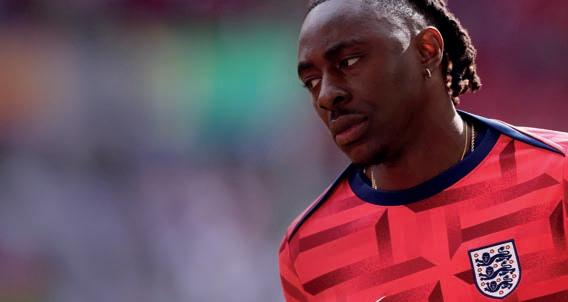

Churches to pray for Holy Land peace
Churches across the UK and Republic of Ireland are planning to set aside time tomorrow (Sunday 21 September) to pray for peace in the Holy Land.
Salvation Army churches are among the places of worship that will be marking this year’s UN International Day of Peace by holding a minute’s silence and joining in acts of prayer that those caught up in the conflict will have access to humanitarian relief, that hostages will be freed, that there will be an end to violence and that work will continue to achieve a lasting peace.

Mick Fleming
Bishop moves into camper van ministry
A gangster-turned-pastor is hitting the road in a camper van to take the Christian message to those who need it most, reported Premier Christian News.
Bishop Mick Fleming – who left behind a life of crime and drugs to become pastor of Church on the Streets – has given away his house and possessions to embrace a new calling, leading a ‘Church on Wheels’. He will journey across the UK, ministering to people he feels are in most need.
‘That’s what Jesus does,’ said Mick. ‘He travels miles out of the way to meet us where we are.’
Young boost US churchgoing
Millennials and Gen Z Christians are now the most regular churchgoers in the US, according to research.
New data from the research organisation Barna Group and tech group Gloo shows that the members of the two generations are attending church nearly twice as often as they did five years ago – jumping from around once a month in 2020 to nearly twice a month in 2025.
In addition, Millennials and Gen Z Christians are now the most regular churchgoers, outpacing older generations, who, said Barna, ‘once formed the backbone of church attendance’.
Daniel Copeland, Barna’s vicepresident of research, said: ‘The fact that young people are showing up more frequently than before is not a typical trend. It’s typically older adults who are the most loyal churchgoers. This data represents good news for church leaders and adds to the picture that spiritual renewal is shaping Gen Z and Millennials today.’
Poet spreads the word

Dai Woolridge
DAI WOOLRIDGE reflects on the rhyme and reason behind his spoken word poetry
Interview by Claire Brine
‘At school, poetry was always something I felt intimidated by,’ says Dai Woolridge, a spoken word poet, author and storyteller from Pontypridd, south Wales. ‘But when I was about 18, I saw a performance by a Christian actor called Rob Lacey, who delivered a story he’d written in such a conversational, beautiful and poetic way that I thought: “Wow, that’s what you can do with words!” I felt inspired.
‘I started writing my own spoken word poetry –but at the time I didn’t really know what “spoken word poetry” was. Years later, I saw a YouTube video in which an American guy called Jefferson Bethke performed a poem that he’d written called “Why I Hate Religion, But Love Jesus”. I thought: “That’s interesting – that’s the kind of thing I’m trying to do.”
‘I wanted to communicate the Bible in creative and performative ways – blending poetry and prose. I wanted to use conversational and colloquial rhyme to deliver the greatest story ever told.’
In 2012, Dai wrote a spoken word poem called ‘The Christmas Chord’. He asked a friend to film him performing it in a car park, then uploaded it to YouTube. His aim had been to tell the story of the birth of Jesus in a way that was down-toearth and accessible. It worked.
‘The poem landed really well with people, and it made me realise that this was what I needed to do with my life: to tell the story of God’s love for

the world. So I came up with the concept “spoken truth” – shorthand for “gospel truth”, through the vehicle of “spoken word” – and applied it to my work.
‘I’m always asking myself: “How can I find different and creative ways to tell the story of the Bible – a story which is not only the greatest story ever, but also a true one? How can I help it make sense to people who have never heard it before?”’
For Dai, the story is equally profound and simple. God created the world and loves the people in it.
‘I don’t believe we are here by accident,’ he says. ‘We were made by God and we were made like him. He made us because he is love and wants to share that love with us. Humans are built for relationship with him.
‘I see that humans are brilliant and beautiful – and yet we are broken. I think all of us can look at the world and know that this isn’t how it’s meant to be.
‘But the gospel truth is that God, the author of the story, wrote himself into the story in the form of Jesus. Jesus came to rescue us, redeem us and restore us from our brokenness. Through him, we have an invitation into a better story.’
As well as writing poems about Bible stories and their characters, Dai often
comes up with material that reflects his personal interests and experiences. In 2021, he was thrilled to perform a spoken word poem about rugby for the Sky Sports coverage of the deciding Test between the British and Irish Lions and South Africa. As a proud Welshman, he also enjoys writing about his surrounding culture and heritage.
I’ve written about the grief of losing my dad
‘Butsome of my most powerful poems tell stories of vulnerability,’ he says. ‘In my book Prayers, Texts and Tears, I’ve written spoken word poems about the grief of losing my dad to cancer. His death 12 years ago had a big impact on me, and I talk about that in the poem “Dad-shaped Holes”. I think all of us have got holes in our lives, representing the people we love who are no longer with us.
‘I’ve written quite a bit about infertility and IVF as well, because that’s a journey that my wife, Cath, and I are on at the moment. It’s our story which asks: How do we process this? How do we deal with
the brokenness of unfulfilled dreams?
‘One of my most vulnerable poems about our experience of infertility is “Anchor of My Soul”. It’s about feeling lost at sea and asking God for help, recognising that he is the anchor that points towards hope.
‘As a poet, I believe part of my role is to own the brokenness that is in the story of my life – but also to say that it’s not all hopeless, because this isn’t the end of my story. My life is rooted in a bigger and greater story in which God is walking beside us, saying: “You’re not alone. I’ve got you. I’m with you.”’
Inspired by ‘the greatest storyteller’ of God’s Son, Jesus, Dai hopes to continue to find exciting ways of sharing the good news of the gospel with anyone who will listen.
‘My passion is to tell this story well: in creative words that acknowledge the brokenness, spread some joy and inspire people to share it with others.’
‘I
was angry that there was nothing more we
could do’
To mark Childhood Cancer Awareness
Month, Professor RICHARD GILBERTSON recalls how meeting a girl with a terminal brain tumour in his first week of medical school sparked a career in cancer research
Interview
by Emily Bright
‘Wearing a ridiculously big lab coat – which made me look about 12 – I was put on a paediatric ward,’ remembers Professor Richard Gilbertson, who is currently director of the Cancer Research UK Cambridge Centre. ‘As Newcastle was a very forward-thinking medical school, it put us students on the ward from the first week.
‘While I was there, I met the family of a girl called Katie. She was in the end stages of medulloblastoma, which is the most common malignant brain tumour in children, and at that stage she’d had all the available treatments.’
Richard became emotionally invested in her care.
‘I got to know the family,’ he says. ‘It was a very distressing time for them, and it was really difficult to watch. I was angry that there was nothing more we could do for Katie. I was on the ward when she died.
‘Not long after, I was talking to my best friend, Nige, who’s now a geriatrician. He said: “It doesn’t matter what you do, but be responsible for a 15 per cent reduction in mortality of a disease.” That was it: I
decided I would work on medulloblastomas – and have done ever since.’
Richard has focused his efforts purely on lab research – rather than combining it with clinical work – since he made a move to the United States in 2000 to work at St Jude Children’s Research Hospital, in Memphis, Tennessee. Having returned to the UK in 2015, he now shares his expertise through multiple roles.
‘I’m currently the head of the oncology department at the University of Cambridge,’ he says, ‘where academics who either treat cancer patients or research cancer are based. I also direct
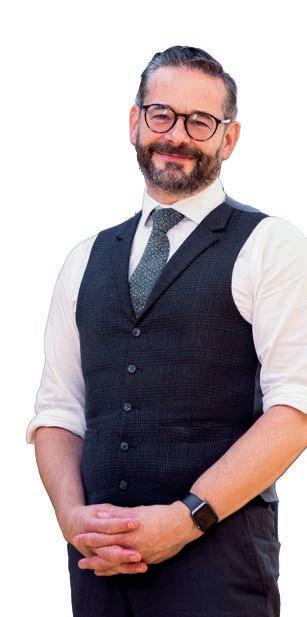
Professor Richard Gilbertson


the Cancer Research UK Cancer Centre in Cambridge, in which about 1,500 academics, nurses, allied healthcare professionals, doctors and surgeons across the university are engaged in research. In October, I’ll become master of one of the Cambridge colleges.
‘Then there’s my research lab, which studies brain tumours in children but also cancer origins. I chair an organisation called the Tessa Jowell Brain Cancer Mission, which is developing a national strategy for brain tumours. I also chair one of the NHS committees which brings innovations into its hospital, and I look after a number of international collaborations, mainly around brain tumours in children.’
Richard says that since his time at medical school and his meeting with Katie in 1986, cancer research has come a long way.
‘Twenty or thirty years ago,’ he says, ‘we realised that although all brain
tumours in children were treated the same – they all got surgery, radiotherapy and chemotherapy, which is very damaging to the child – we didn’t really know where the tumours came from.
We’re developing new treatments
‘And I think the main revolution that has happened in my time with children’s cancer is an understanding of the biology. We have new technologies to study the individual genes that cells express, and what goes wrong in those cells.’
He shares examples of lab work from the Cancer Research UK Cambridge Centre.
‘What we’ve done is look into the tumours in terms of the language they speak, through the genes they express. We realised that the genes that are expressed are a bit like regional accents, and we could map those back to the developing brain and understand
where they came from in the first place. That has underpinned all our work subsequently.
‘Brain tumours develop in the embryo. Normally patients are born with them, or at least the seed of them. Most recently, we’ve discovered why a child tolerates a brain tumour. We’ve got some very exciting treatments, and when we give them, the brain tumours go away.’
Innovations in research are also exploring the role that the body’s natural defences can play in combating cancer.
‘In a gene, there’ll be a mistake which makes that cell go bonkers and make cancer,’ Richard says. ‘And all the drugs that have been developed are about stopping that abnormal gene from working. A lot of the work my lab has done is to show, yes, that’s important, but actually there’s much more stuff that goes on that you can target.
‘For example, there’s a new therapy
Turn to page 10 f
From page 9
that we’ve developed which has nothing to do with cell mutations. With cancer, the immune system is tricked into thinking that a tumour is normal. But if you break that circuit, the body wakes up and goes, “Oh my goodness, this isn’t normal” and then tries to get rid of it. That approach of circuit-breaking has changed the way we work.’
The Cancer Centre is also exploring how to control the spread of cancerous cells around the body.
‘Other parts of the lab are working on metastasis,’ says Richard. ‘The fact is that 99 per cent of patients with cancer die of the tumour spreading around the body, not of the primary tumour. We recently showed that actually that’s a normal process – your organs are sharing
cells with each other all the time – and so we’re developing new treatments based on that.’
Richard and his colleagues are also capitalising on the global growth of AI and machine learning by developing virtual patients on which to test out treatments.
‘Children’s cancer is very rare,’ he says, ‘which means we don’t have many examples to study. If you think of a new treatment, you have to condemn a generation of children to that treatment to get enough patients. And if it’s wrong, which it often is, we’ve lost a generation of children to it.
‘So we do a lot of machine learning. My lab is building what we call “virtual children”, inputting all the information
we have from the biology we’ve done into a computer. The virtual child will develop a tumour, but then we can give them a drug in the computer and see what happens to the tumour. You could develop millions of virtual children, theoretically, to do a clinical trial on.
‘So, rather than testing a drug on actual children and seeing if it works, we can potentially get rid of a lot of drugs that would never work. Or we can understand the context in which they would work.’
Richard has enjoyed working in labs since his school days.
‘I’ve always been a complete nerd,’ he remarks. ‘When I was at a comprehensive school in Manchester, I was always in the lab, drawing stuff down the microscope, reproducing famous experiments to work out the mass of an electron and stuff like that. That thirst for research and the fun of discovery has never gone away.
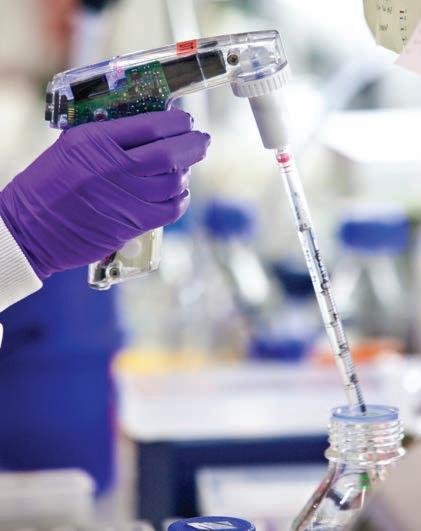
‘It’s good working with different kinds of people, with the challenges and opportunities that brings. And, of course, it’s a privileged position to be in where your work can have tangible benefits for people.’
And in his work, Richard is sustained by his Christian faith, which, he says, gives him ‘a perspective on life beyond the immediate problems’ he faces.
‘Believing in a living God gives you spiritual companionship throughout life – whether that’s facing challenges personally or professionally,’ he says. ‘Understanding that there’s acceptance, forgiveness, hope and a way forward even in the most difficult situations helps me.’
Richard believes that his faith has shaped his interactions with colleagues and kept him grounded.
‘It offers me a code of conduct and helps me realise that, in the big scheme of things, I’m not that important. When you’re running a lab or department
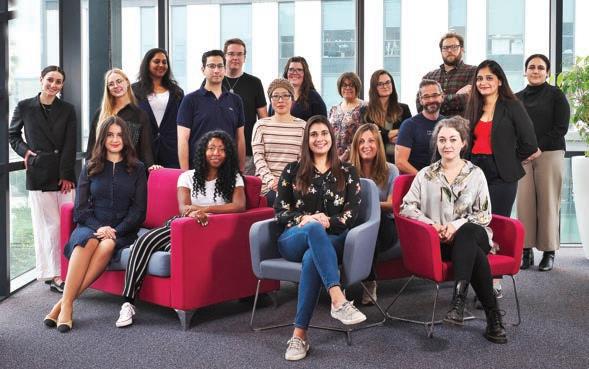
in places like Cambridge, the roles are all hierarchical. But it’s healthy to not take yourself too seriously and remember that the people around you are much more important than you are.
I’ve felt the presence of God most in the lab
‘Jesus taught his 12 disciples, but he also appreciated them and celebrated their success. My approach to leadership is always to identify brilliant people, empower them and create an environment in which they can thrive.
‘I always teach those I’m mentoring to find their mission in life, their unique abilities – which I would see as Godgiven – and to stay true to that.’
Richard’s faith offers him perspective
and purpose in the workplace. And, in turn, his workplace gives him a greater connection with God.
‘I would say that my most intense experiences of worship or the times when I’ve most felt the presence of God have always been in the lab,’ he says.
‘When you discover something new, which is an utterly beautiful window into creation and what the order of things are, my response is a spontaneous, unbridled “wow”. It leads me to praise God. I’m able to see those things on a fairly regular basis.’
Richard grew up going to church with his parents, but it was through a series of formative moments that he decided to follow Jesus for himself. For instance, he remembers his 21st birthday when, sitting in his room at college, he decided that, being on his own, he may as well just open all the parcels that had
been sent to him – which all turned out to be Bibles. He recalls being initially disappointed, but then thinking that he would either choose to believe in God for himself or reject him completely. And he couldn’t shake off a sense of ‘an undeniable, absolute certainty that God exists’.
Richard’s certainty about God’s existence and the questions it poses are brought into sharp focus in his profession.
He reflects: ‘People say to me, “How can you believe in God if children get cancer?” I can’t answer that question. I don’t have the answers to everything, and it’s OK to say that.
‘What I can do is think of what Christ would do in this situation. He would be bringing as much support, positivity, care and love as possible. I have an unshakeable belief that God exists, and that God is love.’
Richard with his lab research team
Prayerlink
Your prayers are requested for Patrick.
The War Cry invites readers to send in requests for prayer, including the first names of individuals and details of their circumstances, for publication. Send your Prayerlink requests to warcry@salvationarmy.org.uk or to War Cry, 1 Champion Park, London SE5 8FJ. Mark your correspondence ‘Confidential’.
jBecoming a Christian
There is no set formula to becoming a Christian, but many people have found saying this prayer to be a helpful first step to a relationship with God
Browsing the Bible
Nigel Bovey gives chapter and verse on each book of the Scriptures
Nahum
Assyria was an enemy of God’s chosen people of Israel. Previously, God had sent a prophet, Jonah, who had reluctantly warned the Assyrian capital of Nineveh (present-day Mosul, Iraq) about God’s impending judgement on its wickedness. God spared the city because the people repented (see Jonah 3:10). But they had soon gone back to their evil ways. In 722BC, the Assyrians destroyed the northern kingdom of Israel, dispersing its 10 tribes.
It is time for God to speak again, and Nahum does what Jonah did 100 years earlier. Somewhere between the fall of the Egyptian city of Thebes in 664BC (Nahum 3:8–10) and the Babylonian destruction of Nineveh in 612BC, Nahum passes on God’s message.
God is not happy. And for good reason: Assyrians repaid his mercy by wiping a large part of his people from the Earth. Nahum does not hold back. God is jealous, avenging, wrathful, powerful, determined, indignant and angry (1:2–6).
But God is not capricious. He works on the principle of actions and consequences. God’s judgement is a function of justice, not of temper.
Lord Jesus Christ,
I know that I have done things in my life that are wrong and I’m sorry.
Thank you that I can ask you for forgiveness because of the sacrifice you made when you died on the cross.

Please forgive me and help me to live a better life in the future as I learn how to love you and follow your way of living.
Thank you, Lord Jesus.
If you’ve prayed this prayer, scan the QR code or contact us using the coupon on this page

Characteristically, God’s prophet presents the divine charge sheet. Nineveh is a ‘city of blood, full of lies, full of plunder’ (3:1 New International Version). Assyria is bloodthirsty in battle, leaving ‘many casualties, piles of dead, bodies without number’ (3:3) and enslaves foreign nations through witchcraft (3:4).
Little wonder that God says twice: ‘I am against you’ (2:13 and 3:5). Nahum outlines the manner of divine retribution.
God will destroy the Assyrians’ idols, temples and families (1:14). Nineveh will be destroyed by a flood (1:8). Invaders will attack (2:1) and lay siege (3:14). People will be cut down by fire and sword (3:15). The city’s treasures will be plundered (2:9).



















The seemingly invincible Assyrian Empire will be wiped out, and the world will rejoice (3:19). No longer will the southern kingdom of Judah face the threat of invasion. For her, God is a deliverer, peace-bringer (1:15) and refuge in times of trouble (1:7). Address









































To receive basic reading about Christianity and information about The Salvation Army, complete this coupon and send it to
War Cry 1 Champion Park London SE5 8FJ


















QUICK QUIZ
Fawlty Towers staff Polly, Basil, Manuel and Sybil
Farcical hotel celebrates golden anniversary
Feature by Ewan Hall
You can discuss whether it is the greatest sitcom ever made – but, whatever you do, don’t mention the war, when Fawlty Towers has its 50th anniversary this weekend.
Which girl group had a No 1 album in 2001 with Survivor?
What is the capital of Peru?
What is the title of the new memoir by former first minister of Scotland Nicola Sturgeon?
Who played tribal chief Stoick the Vast in this year’s live action film How to Train Your Dragon?
Which English football club is nicknamed ‘The Grecians’?
What is the term for a female deer? 1 2 3 4 5 6

First broadcast on 19 September 1975, the show’s pilot introduced audiences to Basil Fawlty (John Cleese), who, with his wife Sybil (Prunella Scales), ran the seaside hotel Fawlty Towers. They were joined by Manuel (Andrew Sachs), a well-meaning but incompetent waiter from Barcelona, and Polly (Connie Booth), the chambermaid who often served as the voice of reason amid the chaos.
Written by John Cleese and his then wife Connie Booth, Fawlty Towers gradually became seen as a classic. And, even though the couple decided to end the show after just 12 episodes, in 2000 it was voted the best British television programme of all time in a British Film Institute poll. A stage version is currently touring theatres.
At the heart of the show’s lasting popularity is the character of Basil, whose short fuse, arrogance and sarcasm ensure that misunderstandings – and trouble – are never far away. He may be ‘trying to run a hotel here’, but his attempts often lead to disastrous results.
Basil could well be a larger-than-life character, but perhaps he – or his flaws – are not entirely unrecognisable.
Maybe at times we are all quick to lose our temper, act selfishly or let pride get in the way of relationships. We can hurt people or make a mess of a situation, leaving us feeling frustrated or overwhelmed.
But our flaws need not have the last laugh. Instead of turning away from us when we go wrong, God offers us forgiveness.
One ancient writer who discovered this truth acknowledged: ‘You, Lord, are kind and forgiving, overflowing with gracious love to everyone who calls on you’ (Psalm 86:5 International Standard Version).
If we turn to God, we can be sure to receive a warm reception. He will show us the extent of his love for us, and we can know that – however big our mistakes – he will forgive us for the times when our motives, judgement or decision-making were most definitely faulty.

1. Set free (7)
5. Remuneration (5)
7. Frenzied (7)
8. Uplift (5)
10. Kill (4)
11. Choke (8)
13. Unbroken (6)
14. Powerful (6)
17. Insinuation (8)
19. Haze (4)
21. Strive (5)
22. Irregular (7)
23. Wicked person (5)
24. Weekday (7)
2. Information sheet (7)
3. Against (4)
4. Rouse (6)
5. Guarantee (8)
6. Leaving (5)
7. Exact copy (9)
9. Vigorous (9)
12. Said yes (8)

15. Excluded (7)



1. Order not to do
Straighten 3. Recess in a wall
Man or boy 5. Capital city of Germany
6. Tool resembling a spade 16. Pre-Christmas period (6) 18. Female relative (5) 20. French cheese (4) ACROSS
HONEYCOMB
QUICK CROSSWORD ACROSS: 1. Release. 5. Wages. 7. Frantic. 8. Raise. 10. Cull. 11. Strangle. 13. Intact. 14. Strong. 17. Innuendo. 19. Mist. 21. Exert. 22. Erratic. 23. Fiend. 24. Tuesday. DOWN: 2. Leaflet. 3. Anti. 4. Excite. 5. Warranty. 6. Going. 7. Facsimile. 9. Energetic. 12. Accepted.15. Omitted. 16. Advent. 18. Niece. 20. Brie. HONEYCOMB 1. Forbid. 2. Unbend. 3. Alcove. 4. Fellow. 5. Berlin. 6. Shovel.


Salmon and kale curry
INGREDIENTS
1tsp olive oil
METHOD

½ red onion, chopped
¼ piece of ginger, chopped
2 garlic cloves, chopped
1tsp fennel seeds
1tsp cumin seeds
150g kale, washed and drained
½ can chopped tomatoes
200ml low-fat coconut milk
1tsp garam masala
2tsp Madras curry powder
1tsp paprika
¼ tsp turmeric powder
¼ cup water
Salt and ground black pepper
2 salmon fillets, halved
1tbsp lemon juice
20g fresh coriander, chopped
Naan bread, to serve
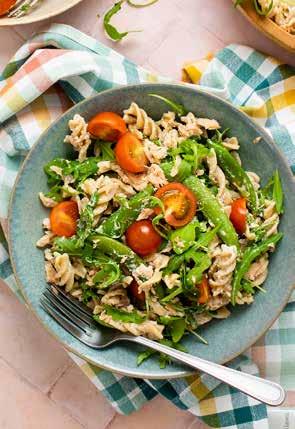
Heat the oil in a large pan over a medium heat and sauté the red onion, ginger, garlic, fennel seeds and cumin seeds for 4 minutes, until the onion is soft and golden.
INGREDIENTS
350g wholewheat pasta
150g sugar snap peas
280g cherry tomatoes, halved
210g can salmon, drained
100g rocket leaves
½ lemon, zest and juice
4tbsp reducedfat crème fraiche
METHOD




Stir in the kale and cook for 3-5 minutes, until wilted and tender.
Add the tomatoes, coconut milk, garam masala, curry powder, paprika, turmeric and water, then season with salt and pepper. Stir well and bring to a gentle simmer, then cook uncovered for 15 minutes, until the sauce slightly thickens.
Carefully place the salmon into the curry. Cover and simmer for 10-15 minutes, until the fish is cooked through and the sauce has a rich consistency.
Turn off the heat and gently stir in the lemon juice, then sprinkle with coriander.
Serve hot with warm naan bread on the side.
Salmon pasta salad
Cook the pasta according to the packet instructions. Add the sugar snap peas to the water 2 minutes before the pasta is cooked.
Once the pasta is ready, drain the pan using a colander or sieve, then place it under cold running water to cool the pasta and peas. Drain again if needed.
Add the pasta, sugar snap peas, cherry tomatoes, salmon and rocket leaves to a large bowl and use two forks to mix the salad together.
In a separate bowl, make the dressing by combining the lemon zest and juice with the crème fraiche.
Tip the dressing over the pasta salad and gently toss everything together, to serve.

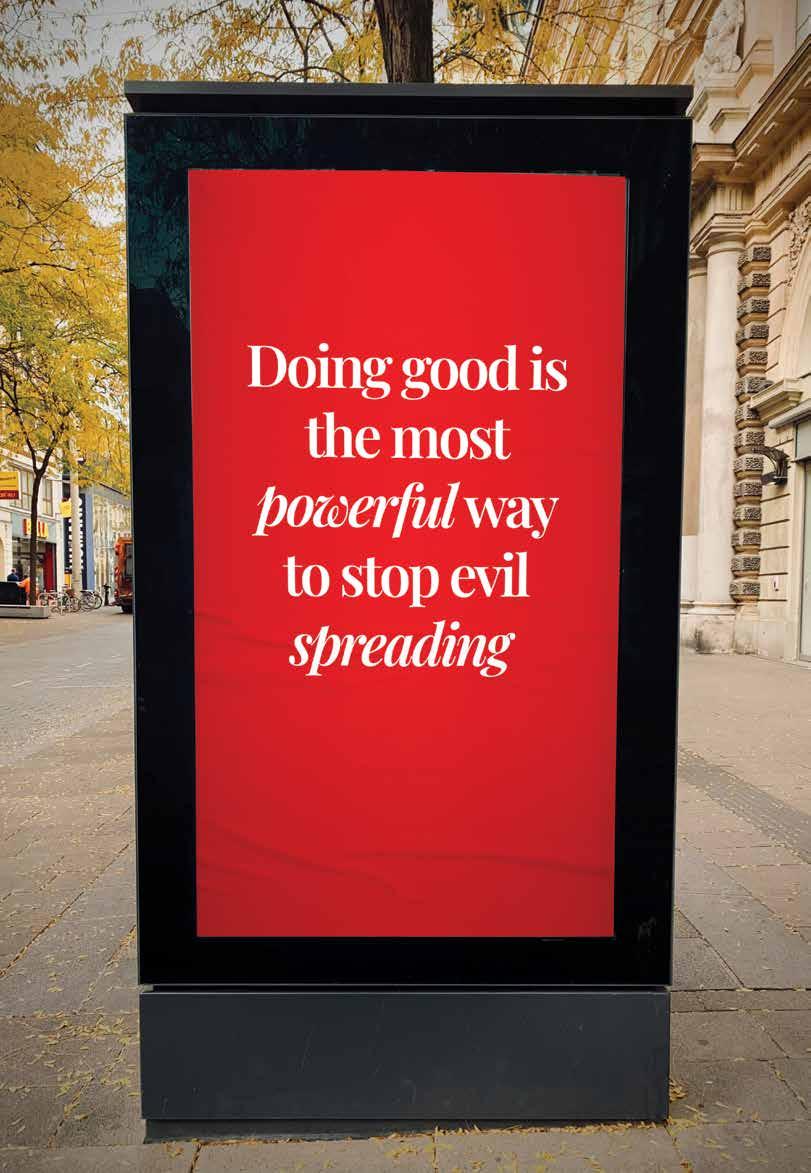
Pippa Gumbel
